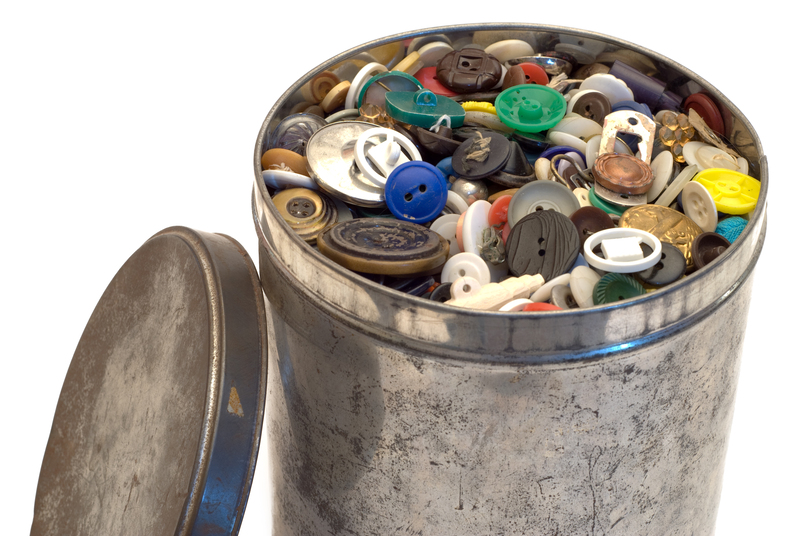Ways to Cut Down on Bulky Waste Costs
Bulky waste disposal can be a significant expense for households, businesses, and property managers. Items such as old furniture, large appliances, mattresses, and other oversized junk often require special handling, disposal fees, and transportation costs. However, by implementing effective strategies and understanding the options available, you can substantially reduce bulky waste costs while ensuring eco-friendly disposal methods.
Understanding Bulky Waste: Definition and Challenges
Before discussing ways to save on bulky waste collection and disposal costs, it's essential to define what qualifies as bulky waste. Generally, bulky waste refers to large items that cannot fit in standard wheeled bins or require special handling. These can include:
- Sofas and couches
- Mattresses and bed frames
- Carpets and rugs
- White goods (fridges, washing machines)
- Exercise equipment
- Wardrobes and large cabinets
- Garden sheds
The main challenges with reducing bulky waste costs involve transportation, landfill fees, limited space in municipal collection services, and environmental regulations. Fortunately, there are several actionable ways to minimize or avoid these expenses.

Top Strategies to Reduce Bulky Waste Expenses
1. Reuse and Repurpose
Instead of jumping to disposal as the first option, think creatively about reuse. Many items can be repurposed or given a second life:
- Upcycle furniture: Transform an old wooden table into shelves or a coffee bench.
- Repurpose appliances: Remove and reuse working parts of dishwashers, ovens, or washing machines for DIY projects or spare parts.
- Community projects: Donate large items to community gardens, schools, or local artists who may use them for materials.
By repurposing, not only do you reduce bulky waste collection costs, but you also support the sustainability movement and help others.
2. Sell or Donate Usable Items
One of the best ways to cut down on bulky waste expenses is by ensuring that your unwanted items find new owners. Here's how you can go about it:
- Online marketplaces: List items on platforms such as Facebook Marketplace, Gumtree, eBay, or Craigslist. Many people look for free or low-cost furniture and appliances.
- Charity donations: Organizations like The Salvation Army, Goodwill, and local shelters often accept large items if they're in usable condition.
- Community swap events: Participate in local swap meets, community garage sales, or neighborhood Facebook groups dedicated to sharing and trading goods.
*Always check with donation centers regarding the types of bulky waste they accept to avoid unnecessary trips and effort.*
3. Break Down Items Before Disposal
Bulky waste disposal fees are often calculated by volume or item. Reducing the size and bulk of items can help lower costs substantially:
- Dismantle furniture: Remove legs, arms, and cushions from sofas to make them more compact.
- Flatten materials: Take apart bed frames, wardrobes, and cardboard to reduce their footprint.
- Bundle smaller parts: Group smaller pieces together for easier handling and possible curbside pickup.
By minimizing the size, you may be able to fit more items in council collection bins or reduce the number of trips (and thus costs) with private waste companies.
4. Utilize Local Authority Collection Services
Many local councils offer bulky waste pickup at subsidized rates, or even for free, up to a certain number of collections per year. Steps to maximize this benefit include:
- Check eligibility: Visit your council's website or call to understand what items are collected, and frequency/limits.
- Book in advance: Slots can fill quickly, so schedule your collection as soon as possible.
- Consolidate waste: Collect bulky items over time and dispose of them together to get the most value per collection.
Proper use of this service can help you avoid private bulky item removal charges and landfill fees.
5. Hire the Right Waste Removal Service
If council services are unavailable or limited, consider hiring professional bulky waste removal companies; but do your research first:
- Compare quotes: Get prices from at least three providers. Look for hidden fees (weight/volume surcharges, call-out fees).
- Check licensing: Make sure providers are licensed waste carriers and dispose of materials responsibly.
- Group with neighbors: Organize bulk pickups with neighbors or other local households to split costs.
This approach can substantially reduce bulky waste disposal prices and ensures compliance with local regulations.
6. Use Recycling and Specialized Facilities
Many bulky items are composed of recyclable materials like metal, wood, and some plastics. Specialized recycling centers often accept:
- Metal bed frames and appliances
- Wooden furniture (untreated and non-upholstered)
- Mattress recycling (foam and springs)
Check for local drop-off facilities. Some are free, while others charge nominal fees far below standard landfill rates. Many retailers also provide take-back schemes for old mattresses, appliances, or sofas when you buy new.
7. Rent a Skip Strategically
For large projects, like home renovations, renting a skip can work out cheaper than multiple trips to the dump. To cut bulky waste skip costs:
- Choose the right size skip to avoid paying for unused space or overfilling fees.
- Sort items so recyclable or free-to-dispose materials don't take up paid space.
- Ask neighbors if they want to share a skip, cutting your costs.
Remember: certain items (like fridges or electronics) may not be allowed in general skips and require separate disposal.
8. Plan and Reduce Bulky Waste Generation
Perhaps the most effective cost-saving strategy is prevention. Here's how to avoid creating unnecessary bulk waste fees:
- Buy quality: Invest in durable items that last, lessening the frequency of disposal.
- Avoid impulse buys: Only purchase large household items when needed.
- Opt for modular furniture: It's easier to move, reuse, and often creates less waste at end-of-life.
With proper planning, you can drastically reduce both the volume and cost of bulky waste disposal.
Special Considerations for Different Groups
For Landlords and Property Managers
- Include waste management clauses in tenancy agreements to clarify responsibilities for bulky waste disposal.
- Conduct regular property inspections and remove unwanted items left behind between tenancies promptly to avoid accumulation.
For Businesses and Offices
- Develop an asset disposal policy and donate redundant but usable furniture to local charities.
- Coordinate with recycling firms to dispose of obsolete office equipment sustainably and at lower costs.
Common Mistakes to Avoid
- Illegal dumping: Fly-tipping is not only unethical but punishable by heavy fines--any savings are easily lost in penalties.
- Poor research: Not confirming what your local authority picks up can lead to wasted time or additional costs.
- Last-minute arrangements: Emergency disposal is almost always more expensive. Plan ahead to secure the best rates.
Final Thoughts on Cutting Down Bulky Waste Costs
Managing bulky waste responsibly doesn't have to empty your wallet. Reuse, recycle, and repurpose whenever possible and maximize use of free or low-cost community and council services. Always compare prices and review provider credentials to avoid hidden fees. By being proactive and creative, you can significantly reduce the cost of disposing of large unwanted items and make a positive environmental impact at the same time.
If you consistently follow these expert tips, not only will your premises be clutter-free, but you'll also realize real financial benefits when it comes to bulky waste disposal costs.

FAQ: Cutting Down on Bulky Waste Costs
- What is considered bulky waste? - Any item that can't fit in a standard household bin, such as sofas, beds, large appliances, or garden equipment.
- Are there free bulky waste disposal options? - Many councils offer limited free collections or allow drop-off at local recycling centers for certain items.
- Can I recycle bulky waste? - Many materials can be recycled at specialized facilities; check locally for what is accepted.
- What should I do with hazardous bulky waste? - Items like fridges, freezers, and electronics must be handled separately; contact your local authority or specialized hauler for safe and legal disposal.
Resources
- Recycle Now - Large Item Recycling Guide
- Gov.uk - Bulky waste collection information
- Salvation Army Furniture Donation Program
Save money, reduce environmental burdens, and better manage your bulky waste disposal costs today with these proven tips and resources!